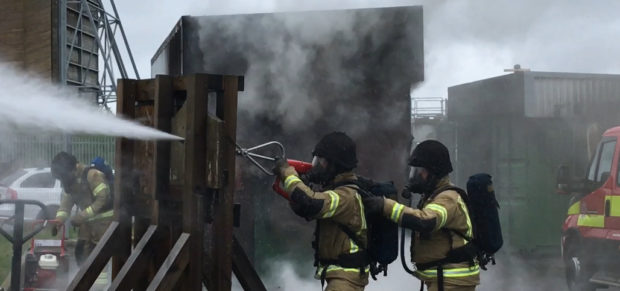A new 40-strong, multimillion pound fleet of fire engines should eliminate the “postcode lottery” between urban and rural rescues, it was claimed yesterday.
The Scottish Fire and Rescue Service unveiled its £7.6million fleet of seven-tonne rapid response appliances at its training centre in Portlethen.
Cars can be cut up in minutes with new equipment attached to the vehicles with “coldcut” technology allowing firefighters to blast water at high pressures through metal or concrete. This means crews won’t face risking their lives entering burning buildings as often.
The technology is already in use in some 45 countries across the globe and the new vehicles have been designed specifically for use in the countryside.
Fire chiefs said 32 brand new 18-tonne fire engines will also be taken into the fleet in the coming months.
A demonstration of the new kit was held in front of an audience of retained firefighter and prominent politicians including community safety minister Annabelle Ewing.
Assistant Chief Officer Lewis Ramsay used an axe from his belt to hack at a piece of wood before standing aside and letting the coldcut blast water through in seconds.
Rural areas have unique challenges with water often scarce, smaller and rougher roads between settlements and often only volunteer firefighters available.
Firefighters in the north-east have raised concerns about staffing levels and appliances being unavailable to respond to emergencies.
But ACO Ramsay said: “I personally made a promise to the people of Scotland in Inverness about a year ago that I was going to work hard to increase capacity and operational front line crews in the rural parts of Scotland. This equipment is a major step forward in increasing that capacity.
“I joined the fire service 30 years ago and I remember retained and rural firefighters being pretty much a poor relation to the town firefighters and that was just not right.
“We don’t want people playing a postcode lottery, we want good coverage no matter where you live.”
Ms Ewing said: “This investment will help SFRS to better meet the needs of rural communities, provide greater flexibility and significantly extend the service’s firefighting capability.”
